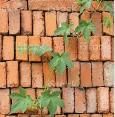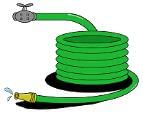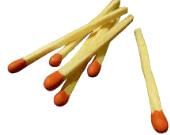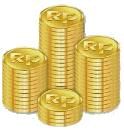All Exams >
Grade 2 >
Science for Grade 2 >
All Questions
All questions of Investigate Materials for Grade 2 Exam
Plastic is a:- a)Natural material
- b)Man-made material
- c)Living thing
- d)All of the above
Correct answer is option 'B'. Can you explain this answer?
Plastic is a:
a)
Natural material
b)
Man-made material
c)
Living thing
d)
All of the above
|
|
Sara singh answered |
Man-made material
Plastic is a man-made material, meaning it is not found in nature but is instead created by humans through chemical processes. Here are some key points to explain why plastic is considered a man-made material:
Composition:
Plastic is composed of synthetic polymers, which are large molecules made up of repeating units called monomers. These polymers are created through the combination of various chemicals derived from fossil fuels like oil and natural gas.
Manufacturing:
Plastic is manufactured in factories through processes like polymerization, extrusion, and molding. These processes involve heating and shaping the raw materials to create the desired plastic products.
Versatility:
One of the main advantages of plastic is its versatility, as it can be molded into different shapes and forms to serve a wide range of purposes. This adaptability is a result of the man-made nature of plastic.
Environmental impact:
The man-made nature of plastic also contributes to its environmental impact, as many types of plastic are not biodegradable and can persist in the environment for hundreds of years. This has led to concerns about plastic pollution and its effects on ecosystems and wildlife.
In conclusion, plastic is considered a man-made material because it is created by humans through chemical processes, as opposed to being a natural material like wood or cotton. Its composition, manufacturing processes, versatility, and environmental impact all reflect its status as a man-made material.
Plastic is a man-made material, meaning it is not found in nature but is instead created by humans through chemical processes. Here are some key points to explain why plastic is considered a man-made material:
Composition:
Plastic is composed of synthetic polymers, which are large molecules made up of repeating units called monomers. These polymers are created through the combination of various chemicals derived from fossil fuels like oil and natural gas.
Manufacturing:
Plastic is manufactured in factories through processes like polymerization, extrusion, and molding. These processes involve heating and shaping the raw materials to create the desired plastic products.
Versatility:
One of the main advantages of plastic is its versatility, as it can be molded into different shapes and forms to serve a wide range of purposes. This adaptability is a result of the man-made nature of plastic.
Environmental impact:
The man-made nature of plastic also contributes to its environmental impact, as many types of plastic are not biodegradable and can persist in the environment for hundreds of years. This has led to concerns about plastic pollution and its effects on ecosystems and wildlife.
In conclusion, plastic is considered a man-made material because it is created by humans through chemical processes, as opposed to being a natural material like wood or cotton. Its composition, manufacturing processes, versatility, and environmental impact all reflect its status as a man-made material.
Which is a set of transparent materials ?- a)Glass and air
- b)Water and glass
- c)Water and air
- d)All of the above
Correct answer is option 'D'. Can you explain this answer?
Which is a set of transparent materials ?
a)
Glass and air
b)
Water and glass
c)
Water and air
d)
All of the above
|
|
Sarika dubey answered |
Transparent Materials:
Glass and air, water and glass, and water and air are all examples of transparent materials.
Glass and Air:
Glass is a transparent material that allows light to pass through it. Air is also a transparent material. When light passes through both glass and air, it continues on its path without being significantly absorbed or scattered.
Water and Glass:
Water is another transparent material that allows light to pass through it. Glass, like water, is also a transparent material. When light passes through water and glass, it also continues on its path without being significantly absorbed or scattered.
Water and Air:
Water and air are both transparent materials that allow light to pass through them. When light passes through water and air, it continues on its path without being significantly absorbed or scattered.
Conclusion:
Therefore, glass and air, water and glass, and water and air are all sets of transparent materials. They allow light to pass through them, making them suitable for various applications where transparency is required.
Glass and air, water and glass, and water and air are all examples of transparent materials.
Glass and Air:
Glass is a transparent material that allows light to pass through it. Air is also a transparent material. When light passes through both glass and air, it continues on its path without being significantly absorbed or scattered.
Water and Glass:
Water is another transparent material that allows light to pass through it. Glass, like water, is also a transparent material. When light passes through water and glass, it also continues on its path without being significantly absorbed or scattered.
Water and Air:
Water and air are both transparent materials that allow light to pass through them. When light passes through water and air, it continues on its path without being significantly absorbed or scattered.
Conclusion:
Therefore, glass and air, water and glass, and water and air are all sets of transparent materials. They allow light to pass through them, making them suitable for various applications where transparency is required.
Which of the following is not filled with air?- a)Football
- b)Lemon
- c)Balloon
- d)Tyre
Correct answer is option 'B'. Can you explain this answer?
Which of the following is not filled with air?
a)
Football
b)
Lemon
c)
Balloon
d)
Tyre
|
|
Swati Sharma answered |
Lemon is not filled with air.
Toothbrushes are made from what material?- a)Steel
- b)Plastic
- c)Water
- d)Cotton
Correct answer is option 'B'. Can you explain this answer?
Toothbrushes are made from what material?
a)
Steel
b)
Plastic
c)
Water
d)
Cotton
|
|
Swati Sharma answered |
Toothbrushes are made from plastic.
An oily thin paper sheet will be __.- a)transparent
- b)translucent
- c)opaque
- d)cannot be predicted
Correct answer is option 'B'. Can you explain this answer?
An oily thin paper sheet will be __.
a)
transparent
b)
translucent
c)
opaque
d)
cannot be predicted
|
|
Arun Desai answered |
An oily thin paper sheet will be translucent.
Which of the following material is used to make lunch boxes?
- a)Glass
- b)Paper
- c)Plastic
- d)Wax
Correct answer is option 'C'. Can you explain this answer?
Which of the following material is used to make lunch boxes?
a)
Glass
b)
Paper
c)
Plastic
d)
Wax
|
|
Swati Sharma answered |
Plastic is used to make lunch boxes.
Which of the following is/are made up of one material only?- a)

- b)

- c)

- d)Both (a) and (c)
Correct answer is option 'D'. Can you explain this answer?
Which of the following is/are made up of one material only?
a)

b)

c)

d)
Both (a) and (c)

|
Dr Manju Sen answered |
Glass and scarf are made up of one type of material only.
Which of the following is soluble in water?- a)Common salt
- b)Chalk powder
- c)Sand
- d)Plastic
Correct answer is option 'A'. Can you explain this answer?
Which of the following is soluble in water?
a)
Common salt
b)
Chalk powder
c)
Sand
d)
Plastic
|
|
Arun Desai answered |
Common salt is soluble in water.
Which objects shown below belongs to Box A?
 A
A
 B
B- a)

- b)

- c)

- d)

Correct answer is option 'B'. Can you explain this answer?
Which objects shown below belongs to Box A?
 A
A
 B
B
 A
A B
Ba)

b)

c)

d)


|
Nclex Coaching Centre answered |
The pin in option B belongs to box A
Butter paper is ______.- a)oily
- b)transparent
- c)opaque
- d)translucent
Correct answer is option 'D'. Can you explain this answer?
Butter paper is ______.
a)
oily
b)
transparent
c)
opaque
d)
translucent
|
|
Arun Desai answered |
Butter paper is translucent.
Which of the following is transparent?- a)Water
- b)Air
- c)Orange
- d)Both (a) and (b)
Correct answer is option 'D'. Can you explain this answer?
Which of the following is transparent?
a)
Water
b)
Air
c)
Orange
d)
Both (a) and (b)
|
|
Arun Desai answered |
Both air and water are transparent.
Which one of these is the hardest material?- a)Steel
- b)Butter
- c)Bread
- d)Wood
Correct answer is option 'A'. Can you explain this answer?
Which one of these is the hardest material?
a)
Steel
b)
Butter
c)
Bread
d)
Wood
|
|
Arun Desai answered |
Steel is the hardest among given materials.
Which of the following object should be crushed after use?- a)

- b)

- c)

- d)
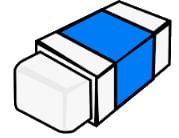
Correct answer is option 'B'. Can you explain this answer?
Which of the following object should be crushed after use?
a)

b)

c)

d)

|
|
Swati Sharma answered |
A plastic bottle can be crushed after use.
Which of the following is a substance through which things are partially visible?- a)Opaque
- b)Translucent
- c)Transparent
- d)None of the above
Correct answer is option 'B'. Can you explain this answer?
Which of the following is a substance through which things are partially visible?
a)
Opaque
b)
Translucent
c)
Transparent
d)
None of the above
|
|
Swati Sharma answered |
Transparent material allow partial light to pass through them.
Knife, forks and spoons are made from which material?- a)Rubber
- b)Cardboard
- c)Metal
- d)Wood
Correct answer is option 'C'. Can you explain this answer?
Knife, forks and spoons are made from which material?
a)
Rubber
b)
Cardboard
c)
Metal
d)
Wood
|
|
Arun Desai answered |
Knife, forks and spoons are made from metals.
Study the given flow chart carefully. Which of the following could be classified under groups X and Y?
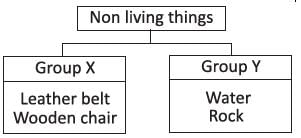
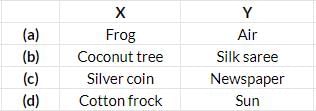
- a)a
- b)b
- c)c
- d)d
Correct answer is option 'D'. Can you explain this answer?
Study the given flow chart carefully. Which of the following could be classified under groups X and Y?



a)
a
b)
b
c)
c
d)
d
|
|
Arun Desai answered |
Cotton frock is manmade and Sun is natural.
Bicycle tires are made from which material?- a)Metal
- b)Rubber
- c)Cotton
- d)String
Correct answer is option 'B'. Can you explain this answer?
Bicycle tires are made from which material?
a)
Metal
b)
Rubber
c)
Cotton
d)
String
|
|
Arun Desai answered |
Bicycle tires are made from rubber.
______ is the shortest and ______ is the longest item in the given figure.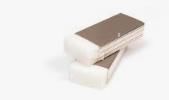

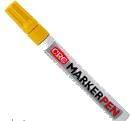
- a)Eraser, marker
- b)Pen, marker
- c)Pen, easer
- d)Eraser, pen
Correct answer is option 'D'. Can you explain this answer?
______ is the shortest and ______ is the longest item in the given figure.



a)
Eraser, marker
b)
Pen, marker
c)
Pen, easer
d)
Eraser, pen
|
|
Arun Desai answered |
Here eraser is the shortest and pen is the longest
Study the given table carefully. Which of the following can be placed at P and Q?
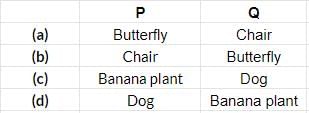
- a)a
- b)b
- c)c
- d)d
Correct answer is option 'A'. Can you explain this answer?
Study the given table carefully. Which of the following can be placed at P and Q?


a)
a
b)
b
c)
c
d)
d
|
|
Swati Sharma answered |
Butterfly is living while chair is non-living.
Wood is used for making matchstick because it ___________.- a)burns
- b)rots
- c)floats
- d)sinks
Correct answer is option 'A'. Can you explain this answer?
Wood is used for making matchstick because it ___________.
a)
burns
b)
rots
c)
floats
d)
sinks
|
|
Arun Desai answered |
Wood is used for making matchstick because it burns.
Study the classification chart carefully. Which of these materials can be placed under both the groups?
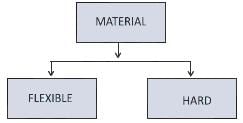
- a)Plastic
- b)Wood
- c)Iron
- d)Gold
Correct answer is option 'A'. Can you explain this answer?
Study the classification chart carefully. Which of these materials can be placed under both the groups?


a)
Plastic
b)
Wood
c)
Iron
d)
Gold

|
Nclex Coaching Centre answered |
Plastic: Some types of plastic can be flexible, while others are rigid. However, it is generally not very hard compared to metals.
Wood: Wood is generally hard and rigid but not flexible.
Iron: Iron is hard and rigid, but it is not flexible.
Gold: Gold is a soft metal and can be easily shaped (malleable) but is not flexible.
Wood: Wood is generally hard and rigid but not flexible.
Iron: Iron is hard and rigid, but it is not flexible.
Gold: Gold is a soft metal and can be easily shaped (malleable) but is not flexible.
Select the option that can be placed in the same group where object X can be placed.
- a)

- b)

- c)
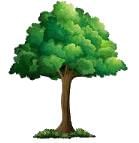
- d)

Correct answer is option 'D'. Can you explain this answer?
Select the option that can be placed in the same group where object X can be placed.

a)

b)

c)

d)

|
|
Swati Sharma answered |
Both Sun and rock are natural non-living things.
Which picture shows objects with shapes most alike?- a)
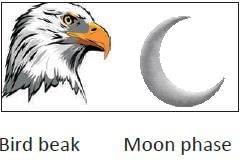
- b)
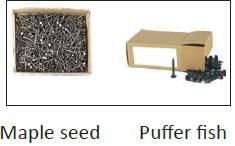
- c)
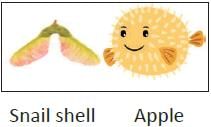
- d)
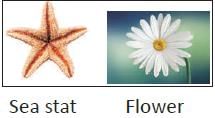
Correct answer is option 'D'. Can you explain this answer?
Which picture shows objects with shapes most alike?
a)

b)

c)

d)

|
|
Arun Desai answered |
Shape of sea star and flower is almost alike.
There is a high demand for compost in a market.- a)True
- b)False
- c)Can’t say
- d)Both (a) and (b)
Correct answer is option 'A'. Can you explain this answer?
There is a high demand for compost in a market.
a)
True
b)
False
c)
Can’t say
d)
Both (a) and (b)
|
|
Swati Sharma answered |
Compost is in high demand as it is biodegradable.
Which of the following is an example of solid?- a)Orange juice
- b)Air
- c)Safety pin
- d)Oil
Correct answer is option 'C'. Can you explain this answer?
Which of the following is an example of solid?
a)
Orange juice
b)
Air
c)
Safety pin
d)
Oil
|
|
Arun Desai answered |
Safety pin is solid material.
Select the option that can be placed in the same group where object X can be placed.
- a)

- b)

- c)

- d)

Correct answer is option 'C'. Can you explain this answer?
Select the option that can be placed in the same group where object X can be placed.

a)

b)

c)

d)

|
|
Swati Sharma answered |
Both ball and clock are man-made.
Find the odd one out.- a)Wood
- b)Metal
- c)Plastic
- d)Glass
Correct answer is option 'D'. Can you explain this answer?
Find the odd one out.
a)
Wood
b)
Metal
c)
Plastic
d)
Glass
|
|
Swati Sharma answered |
Glass is transparent while other three are opaque.
Which of the following is non recyclable?- a)Paper
- b)Coal
- c)Plastic
- d)All of these
Correct answer is option 'B'. Can you explain this answer?
Which of the following is non recyclable?
a)
Paper
b)
Coal
c)
Plastic
d)
All of these

|
Dr Manju Sen answered |
- Paper: Recyclable. It can be processed and reused to make new paper products.
- Coal: Non-recyclable. Coal is a fossil fuel, and once it is burned for energy, it cannot be reused or recycled. Its energy content is consumed during combustion.
- Plastic: Generally recyclable. Many types of plastics can be melted down and remolded into new products, though not all plastics are recyclable depending on local facilities.
- Coal: Non-recyclable. Coal is a fossil fuel, and once it is burned for energy, it cannot be reused or recycled. Its energy content is consumed during combustion.
- Plastic: Generally recyclable. Many types of plastics can be melted down and remolded into new products, though not all plastics are recyclable depending on local facilities.
Select the option that can be placed in the same group as the object X.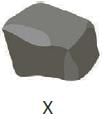
- a)

- b)

- c)
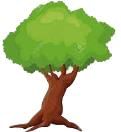
- d)None of these
Correct answer is option 'C'. Can you explain this answer?
Select the option that can be placed in the same group as the object X.

a)

b)

c)

d)
None of these
|
|
Arun Desai answered |
Both rock and tree are natural.
Chapter doubts & questions for Investigate Materials - Science for Grade 2 2025 is part of Grade 2 exam preparation. The chapters have been prepared according to the Grade 2 exam syllabus. The Chapter doubts & questions, notes, tests & MCQs are made for Grade 2 2025 Exam. Find important definitions, questions, notes, meanings, examples, exercises, MCQs and online tests here.
Chapter doubts & questions of Investigate Materials - Science for Grade 2 in English & Hindi are available as part of Grade 2 exam.
Download more important topics, notes, lectures and mock test series for Grade 2 Exam by signing up for free.
Science for Grade 2
28 videos|93 docs|53 tests
|

Contact Support
Our team is online on weekdays between 10 AM - 7 PM
Typical reply within 3 hours
|
Free Exam Preparation
at your Fingertips!
Access Free Study Material - Test Series, Structured Courses, Free Videos & Study Notes and Prepare for Your Exam With Ease

 Join the 10M+ students on EduRev
Join the 10M+ students on EduRev
|

|
Create your account for free
OR
Forgot Password
OR
Signup to see your scores
go up within 7 days!
Access 1000+ FREE Docs, Videos and Tests
Takes less than 10 seconds to signup


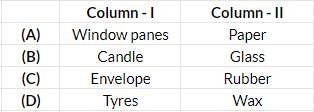
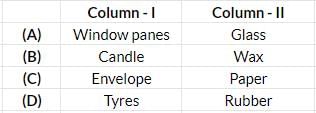

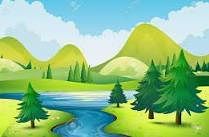


 Tissue
Tissue Paper cup
Paper cup Glass
Glass Milk carton
Milk carton